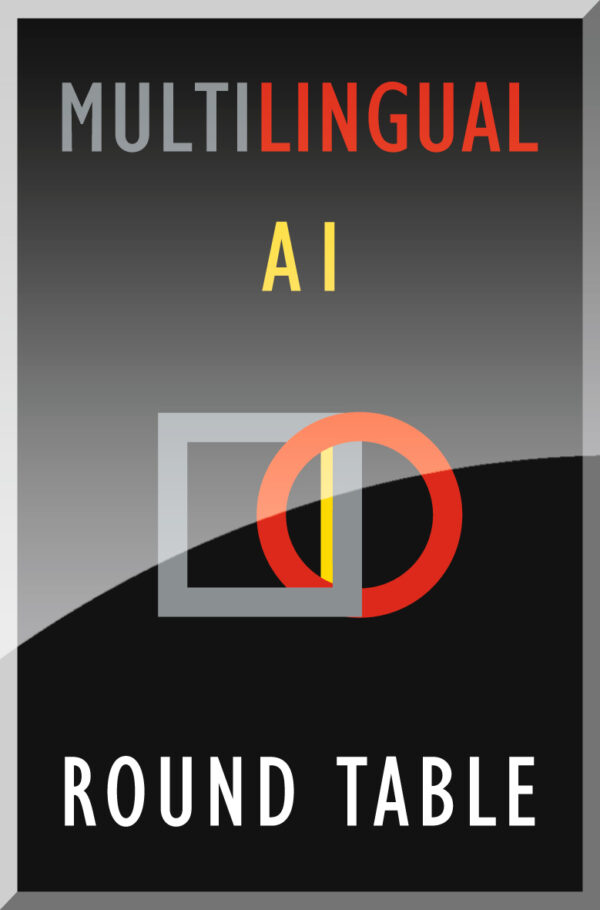Feel the Pulse of AI

Let us first set the stage: Imagine a disruption speaker who is an independent thinker and shares his or her ideas to help you stay ahead of the curve of new innovations brought by multilingual AI. These ideas will lead to further moderated discussions and help participants in their real-life AI implementation. This is the setting for the Multilingual AI Round Table on October 10, 2023 at LocWorld Silicon Valley. The theme of this roundtable is to feel the pulse of AI.
Disruption speaker:
I have a student who recently told me that when they started to implement machine translation (MT), they were told to clean their translation memory so that it can be used to train the MT engine. It took them half a year to learn how to do the cleaning. The task was tedious and boring. Yet sometimes the learning curve was steep, as they did not understand why, for example, they had to chunk/combine the segmentation, or why sometimes what they thought was a good translation did not work well for MT training. In any case, after they gradually got a clearer picture of how to do it, they were told this part of work could be replaced by AI tools.
This example echoes one major concern about AI: AI learns and adapts so rapidly that the speed of human learning and responsible use of tools can not keep up with that of machine learning.
Multilingual AI can be considered as a collection of tools that are used to process language data in multiple cultures, including generative AI, supervised learning, unsupervised learning, and reinforcement learning. With the launch of ChatGPT, multilingual large language models (LLMs) become more accessible, which greatly shortens the time of custom AI tools from years to weeks or even days. When providing localization services embedded in every part of business operations, humans must adapt to changes brought by a large volume of custom AI technologies.
More and more, we have started to explore low/no code tools to enable the user to customize their AI systems. Nowadays, you may not be surprised if your coworker tells you it takes just a few lines of code to build a custom AI system, for example, sentiment analysis, machine translation or conversational AI. Users can achieve this by providing prompts (or data) instead of writing code. This also means we will be facing very diverse opportunities that we can go after. From this perspective, adapting to change also means we need to manage our team to pursue very diverse use cases and allow incumbent companies to integrate them into their existing operations, including data migration and AI talent development. It needs interdisciplinary collaboration that involves domain expertise and AI technology. With this mindset and development model, AI can most effectively support the idea of subject matter experts to bring extra value to businesses.
Moderated discussions and demonstration:
The roundtable will focus on the following areas:
- Landscape overview: current and future development of multilingual AI
To feel the pulse of AI, we must understand the general technology landscape and some basic, relevant AI algorithms. In artificial neural networks, vector representation and high dimensionality are unique ways for computers to process languages. To understand their own rationale or logic to handle language phenomena, we must step back from the conventional, intuitive ways to approach language, e.g., grammar and syntax, which leads to a relatively steep learning curve. To better absorb information in this session, participants will be provided with a glossary with basic natural language processing (NLP) and machine learning (ML) concepts in advance.
- Reliability: keeping AI under control
In reality, oftentimes we see clashes and contradictions between our intention and the actual AI outputs. In particular, catastrophic errors are destructive. The point is that purely manual QA tools is not a solution in an AI-driven process, if it drags down the productivity of other steps. This module will focus on how automatic QA tools can complement human evaluation activities, including intelligent quality evaluation, edit distance, quality estimation, and intention alignment.
- Emerging roles: adjusting to the new roles created by AI
One of the main goals of AI is to generate tools that collaborate, rather than compete, with humans. As we know, words are just words until they are put to practice, and that practice is always centered around humans. In this sense, humans must lead the AI-powered localization workflow, with their original human experiences and as the ultimate users of AI. This module will discuss how humans work with AI, new job opportunities, human-computer interaction (HCI) in the context of multilingual AI.
- A holistic approach: managing the dynamics of change in an AI age
In this age of AI, no ‘entity’, which includes both humans and machines, is an island.
What AI produces is supposed to be in alignment with what an imaginary, collective ‘person’ trained on a large volume of data can do. In an AI-powered, human-led localization process, we must focus on the bigger picture. This module introduces new ideas and best practices of change management in terms of language data creation and management, community building, and AI system development.
In many aspects, AI means productivity. Together, we can feel the pulse of AI and leverage its power.
- Are you working to implement customized AI solutions with your team in your global translation workflows?
- Are you looking to share experiences, pain points and best practices for doing so with your peers in the localization and translation industries in a safe space for open discussion?
Disclaimer: Copyright © 2021 The Localization Institute. All rights reserved. This document and translations of it may be copied and furnished to others, and derivative works that comment on or otherwise explain it or assist in its implementation may be prepared, copied, published, and distributed, in whole or in part, without restriction of any kind, provided that the above copyright notice and this section are included on all such copies and derivative works. However, this document itself may not be modified in any way, including by removing the copyright notice or references to The Localization Institute, without the permission of the copyright owners. This document and the information contained herein is provided on an “AS IS” basis and THE LOCALIZATION INSTITUTE DISCLAIMS ALL WARRANTIES, EXPRESS OR IMPLIED, INCLUDING BUT NOT LIMITED TO ANY WARRANTY THAT THE USE OF THE INFORMATION HEREIN WILL NOT INFRINGE ANY OWNERSHIP RIGHTS OR ANY IMPLIED WARRANTIES OF MERCHANTABILITY OR FITNESS FOR A PARTICULAR PURPOSE.




